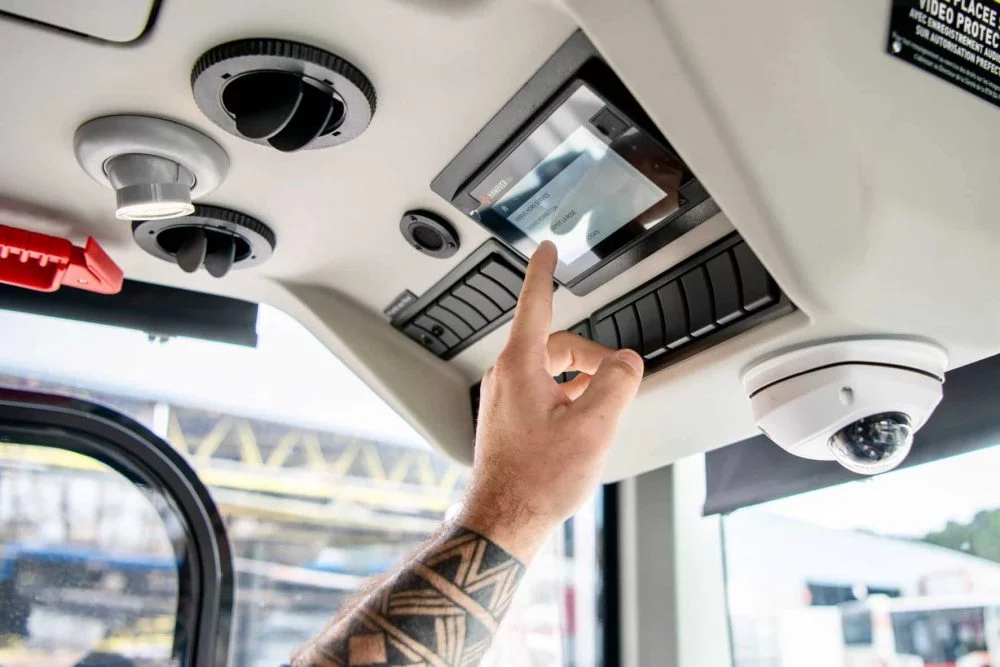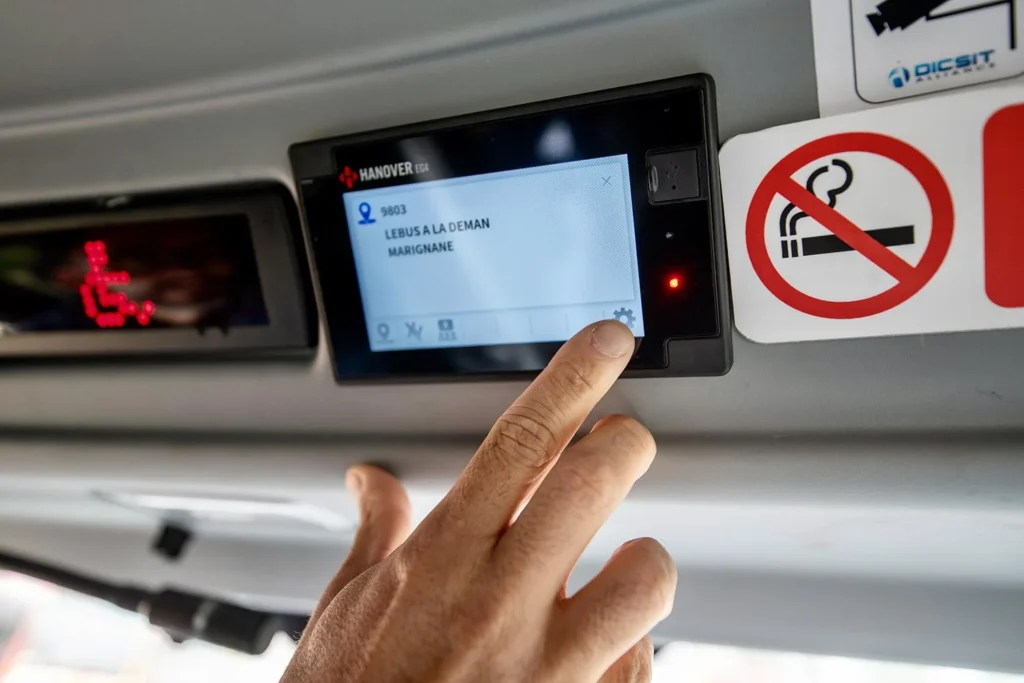Subtotal $0.00

Introduction
The safety of public transport workers, especially bus drivers, is of paramount importance. However, recent reports from within the London bus network operated by Transport for London (TfL) have raised serious concerns about the practice of controllers frequently contacting bus drivers over radio communication, which has been deemed a dangerous and unfair practice. Despite regulations in place to ensure the safety of drivers, this practice continues to jeopardize their well-being and disrupt their focus on driving. In this article, we will explore the effects of this practice, the responsibilities of TfL, and the potential consequences of such actions.
1. The Role of Transport for London (TfL) and Bus Operators

- TfL’s Responsibility: Transport for London is the government body responsible for overseeing public transportation in London, including buses. TfL works with several bus operators, including Arriva London, Stagecoach London, and Go-Ahead London, to provide bus services across the city.
- Bus Operators: These private companies are contracted by TfL to run bus routes under strict conditions. TfL sets out the operational standards, including safety protocols, training, and working conditions for drivers.
- Communication Systems: One of the essential elements of bus operations is the communication between controllers (who monitor buses) and drivers. Communication is primarily carried out over radios to provide updates on routes, incidents, delays, and safety concerns.
The safety of public transport workers, especially bus drivers, is of paramount importance. However, recent reports from within the London bus network operated by Transport for London (TfL) have raised serious concerns about the practice of controllers frequently contacting bus drivers over radio communication, which has been deemed a dangerous and unfair practice. Despite regulations in place to ensure the safety of drivers, this practice continues to jeopardize their well-being and disrupt their focus on driving. In this article, we will explore the effects of this practice, the responsibilities of TfL, and the potential consequences of such actions.
1. The Role of Transport for London (TfL) and Bus Operators
- TfL’s Responsibility: Transport for London is the government body responsible for overseeing public transportation in London, including buses. TfL works with several bus operators, including Arriva London, Stagecoach London, and Go-Ahead London, to provide bus services across the city.
- Bus Operators: These private companies are contracted by TfL to run bus routes under strict conditions. TfL sets out the operational standards, including safety protocols, training, and working conditions for drivers.
- Communication Systems: One of the essential elements of bus operations is the communication between controllers (who monitor buses) and drivers. Communication is primarily carried out over radios to provide updates on routes, incidents, delays, and safety concerns.
2. The Growing Issue of Frequent Radio Communication with Bus Drivers
- Constant Interruptions: Bus drivers report that controllers often contact them over the radio, sometimes with irrelevant or excessive requests. These interruptions can occur during critical moments, such as when a driver is navigating busy roads, managing difficult traffic, or trying to focus on their route.
- Disrupting Driver Concentration: Frequent and unnecessary radio communication can distract drivers, reducing their ability to focus on the road. This situation is dangerous, especially in London, where roads are densely populated and traffic can be unpredictable.
- Examples of Unnecessary Communication: Reports from drivers have described instances where controllers ask for non-essential information, such as minor updates on schedules or repetitive confirmations of vehicle status. This leads to mental fatigue and stress, which can impair a driver’s performance.
3. The Safety Implications for Bus Drivers
- Increased Risk of Accidents: Research has shown that driver distractions significantly increase the risk of accidents. For example, when a driver is interrupted by radio communication, their cognitive attention is split between the road and the radio call. This creates a dangerous situation for both the bus driver and other road users.
- Impact on Mental Health: The constant pressure of being in communication with controllers can take a toll on drivers’ mental health. Drivers report stress, anxiety, and frustration due to constant disruptions, which may lead to burnout or more severe mental health problems.
- Fatigue and Exhaustion: The cumulative effect of regular radio interruptions over the course of a shift can lead to physical and mental fatigue. Fatigued drivers are more likely to make errors or fail to react quickly in emergencies, increasing the likelihood of accidents.
4. The Legal and Ethical Issues at Play
- Health and Safety Regulations: Under the Health and Safety at Work Act 1974, employers (in this case, bus operators under TfL’s oversight) are required to ensure the safety and well-being of their employees. Constant interference through radio communication violates this principle as it creates unnecessary stress and distractions for drivers.
- Driving Regulations and Distraction Laws: The Highway Code and various driving regulations emphasize that distractions while driving can be hazardous. While the rules mostly apply to private motorists, the same principle should apply to commercial vehicle drivers, including those behind the wheel of buses. Excessive radio communication is a form of distraction that undermines these safety protocols.
- Duty of Care: TfL, as the governing body, has a duty of care to ensure that its bus operators follow proper safety protocols, including managing communication effectively. The current practice of frequent, unnecessary radio communication could be considered a breach of this duty, as it endangers the safety of drivers and the passengers they transport.
5. Public and Driver Concerns about the Practice
- Feedback from Bus Drivers: Numerous bus drivers have come forward to voice concerns about the excessive use of radio communication. Some drivers have even described it as a form of harassment, as they are often pressured to respond to unnecessary radio calls while managing traffic and passengers.
- Public Perception: Passengers may not be fully aware of the distractions bus drivers face. However, those who are familiar with the issue might feel uncomfortable knowing that the bus driver’s attention is divided between the road and the radio. Any accident or incident caused by this distraction could have far-reaching consequences, both for the passengers and the public image of TfL.
- Union Support: Bus driver unions have raised concerns about the mental health and safety risks posed by this practice. Calls for better regulation of radio communication and clearer guidelines on what constitutes essential communication are growing louder. Unions have suggested that more structured and focused communication systems should be implemented to limit distractions and improve the working environment for bus drivers.
6. Calls for Change and Proposed Solutions
- Limiting Unnecessary Communication: A potential solution is to establish clear guidelines that outline when and why controllers should communicate with bus drivers. These guidelines should prioritize safety and efficiency, ensuring that drivers are not interrupted unless necessary for operational or safety reasons.
- Enhanced Training for Controllers: Controllers need to receive specific training in how and when to contact bus drivers. This training should emphasize the importance of minimizing distractions and making communication concise, relevant, and supportive.
- Alternative Communication Tools: Implementing alternative communication technologies, such as in-vehicle displays or automated systems, could help reduce the reliance on verbal radio calls. These systems could relay important information directly to drivers, minimizing disruptions.
- Mental Health Support: TfL and bus operators should invest in mental health and stress management programs for bus drivers. Given the high-stress nature of the job, providing accessible support services is essential to ensure that drivers’ well-being is maintained.
7. Conclusion
The practice of frequently contacting London bus drivers over radio communication is a dangerous and unfair practice that has been tolerated for far too long. It undermines the safety of both the bus drivers and the passengers they serve, as well as violating several health and safety regulations. While the need for communication between controllers and drivers is vital for smooth operations, the current system has to be re-evaluated to protect workers and ensure that public safety remains a top priority.
Transport for London and the bus operators it oversees must take immediate action to limit unnecessary interruptions and invest in safer, more efficient communication practices. Ultimately, the safety of bus drivers should be prioritized, and a more supportive working environment needs to be established to safeguard their well-being.
Key Takeaways:
- Constant radio communication with bus drivers in London is distracting and dangerous.
- Frequent interruptions lead to mental fatigue, stress, and increased risk of accidents.
- Transport for London has a legal duty to ensure drivers’ safety and well-being.
- Bus drivers and unions are calling for change, including better communication protocols.
- Proposed solutions include limiting non-essential communication and investing in alternative technologies.





